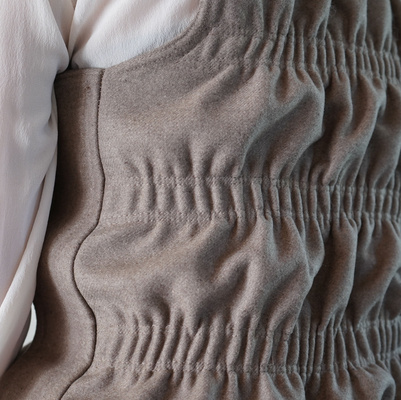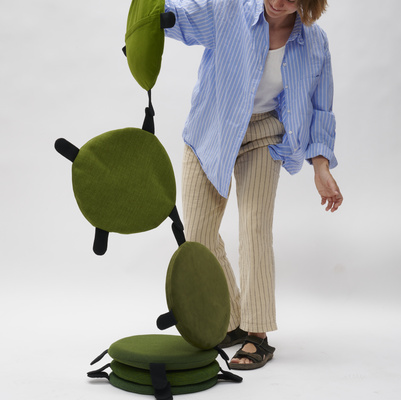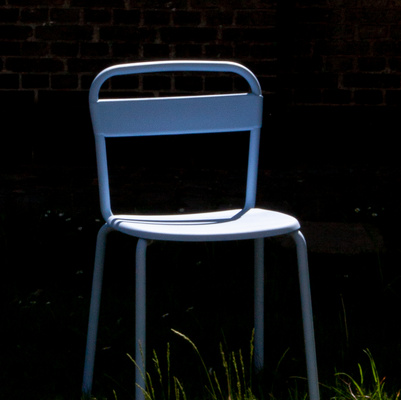Name
Maria Elisabeth Andersen
Education degree
Master
Subject area
Design
Study programme
Furniture Design - Products, Materials and Contexts
Year
2023
It is widely known that textiles improve the acoustic experience. This project explores why and how that is. Acoustics are directly related to well-being, and in order to create sustainable and caring environments, we need balanced acoustic spaces. Learning from acoustic theories, TEKSTIL AKUSTIK emphasizes the properties of textiles and reflects upon the quality of the spaces we interact with.

Map of restaurants with challenging acoustics in Copenhagen

Sound sketch mapping different acoustic situations

Site: AutoPoul an old mechanics workshop with occasional pop-up restaurants
The Royal Danish Academy supports the Sustainable Development Goals
Since 2017 the Royal Danish Academy has worked with the Sustainable Development Goals. This is reflected in our research, our teaching and in our students’ projects. This project relates to the following UN goal(-s):
Good health and well-being (3)















